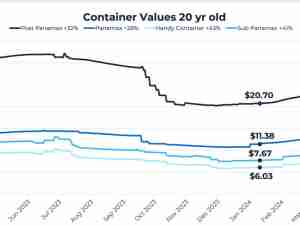Motives for buying warehouses include diversifying revenue streams. Lucrative financing deals that tie metal up for long periods and the potential launch of physically-backed exchange traded products (ETPs) also require long-term storage.
The latest deal saw Pacorini's metals warehousing unit fall into the hands of the world's biggest commodity trader Glencore International.
"There is the possibility that when a trading company owns a warehouse the line is crossed," said Edward Meir, analyst at MF Global. "In this case the LME will impose stricter regulations, otherwise people will lose faith in the system."
The pervading unease could lead to existing warehouses without LME registration seeking approval. New entrants to the metals warehousing business is another possibility.
Higher levels of monitoring by the LME or warehouse users flocking to remaining independents such as C. Steinweg, the largest of them all, were also mentioned as consequences.
All warehouse companies are visited regularly by LME inspectors, said the exchange's head of regulation and compliance Diarmuid O'Hegarty.
"Wherever there is a relationship between a trader and warehouse company, there is a requirement for a detailed explanation outlining the companies' procedures to ensure there are Chinese walls in place," O'Hegarty said.
"Breaches of LME rules ... may result in anything from a financial penalty to the delisting of the company."
Debate Intensifies
Warehousing company Henry Bath is owned by JP Morgan, after the U.S. bank bought the global metals trading business of RBS Sempra Commodities on July 1.
Earlier this year U.S. bank Goldman Sachs bought warehousing and logistics firm Metro and commodities trader Trafigura acquired NEMS.
A warehousing source said Glencore had hired an independent third-party company to make sure effective Chinese walls are in place. But the Pacorini news has intensified the debate.
"It's going to be difficult, I don't want Glencore knowing what we are doing," a warehousing source at a bank said. "The same with Metro and NEMS ... More LME registered independents is a possibility, the LME stepping up surveillance is another."
Isabelle Ealet, global head of commodities at Goldman Sachs, said: "We are confident that our Chinese walls are effective and would be completely supportive of any enhanced monitoring by the LME."
NEMS said it operates a rigorous Chinese walls policy that is regulated by the LME. "Both NEMS and Trafigura continue to work independently of each other with many third parties."
Of the six biggest warehousing companies in the metals arena, only two remain independent. One is Asia-based CWT Commodities, which has said it is not for sale
That echoed a source at Steinweg, who told Reuters the company intends to remain independent.
"Steinweg may remain independent, they could use it as a marketing ploy," a senior metals industry source said.
"It is possible we could see new warehousing firms spring up, but it's not an easy thing to get into and needs experience ... It may be difficult to get critical mass quickly."
Registering with the LME is also an expensive business, warehousing sources said.
The LME said listing a warehousing firm costs 5,000 pounds and for additional sheds or warehouses the cost is 4,000 pounds.
Impenetrable
Others expect Chinese walls will be impenetrable and say banks are tapping different sectors to expand revenue sources and reduce reliance on financial markets.
One way is financing deals which have tied up large swathes of aluminium and zinc in LME warehouses.
These deals -- some as long as a year -- release cash for producers, earn high returns for banks and ensure steady revenues for warehouses.
Also a consideration are LME stocks. Aluminiu








